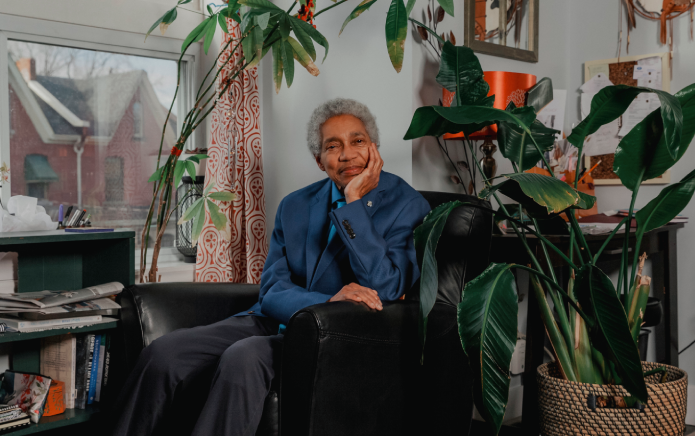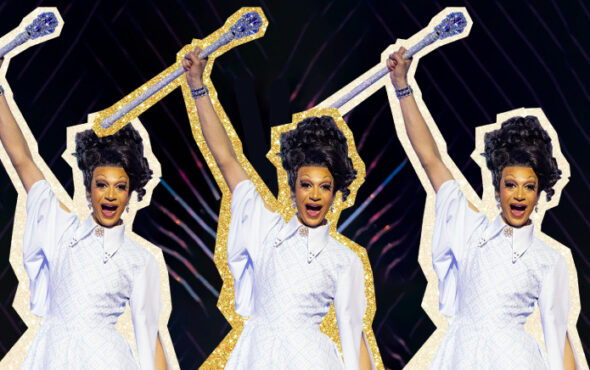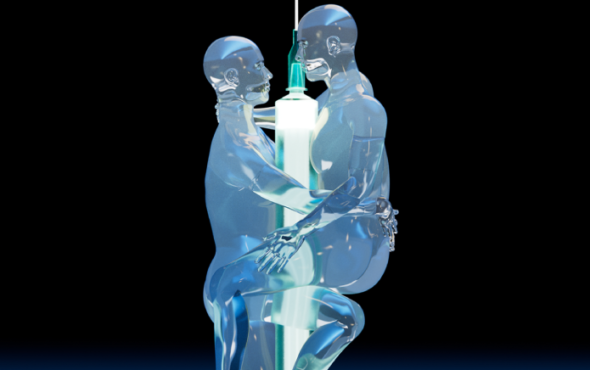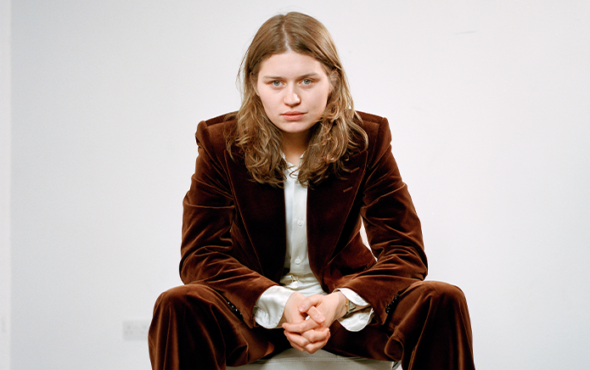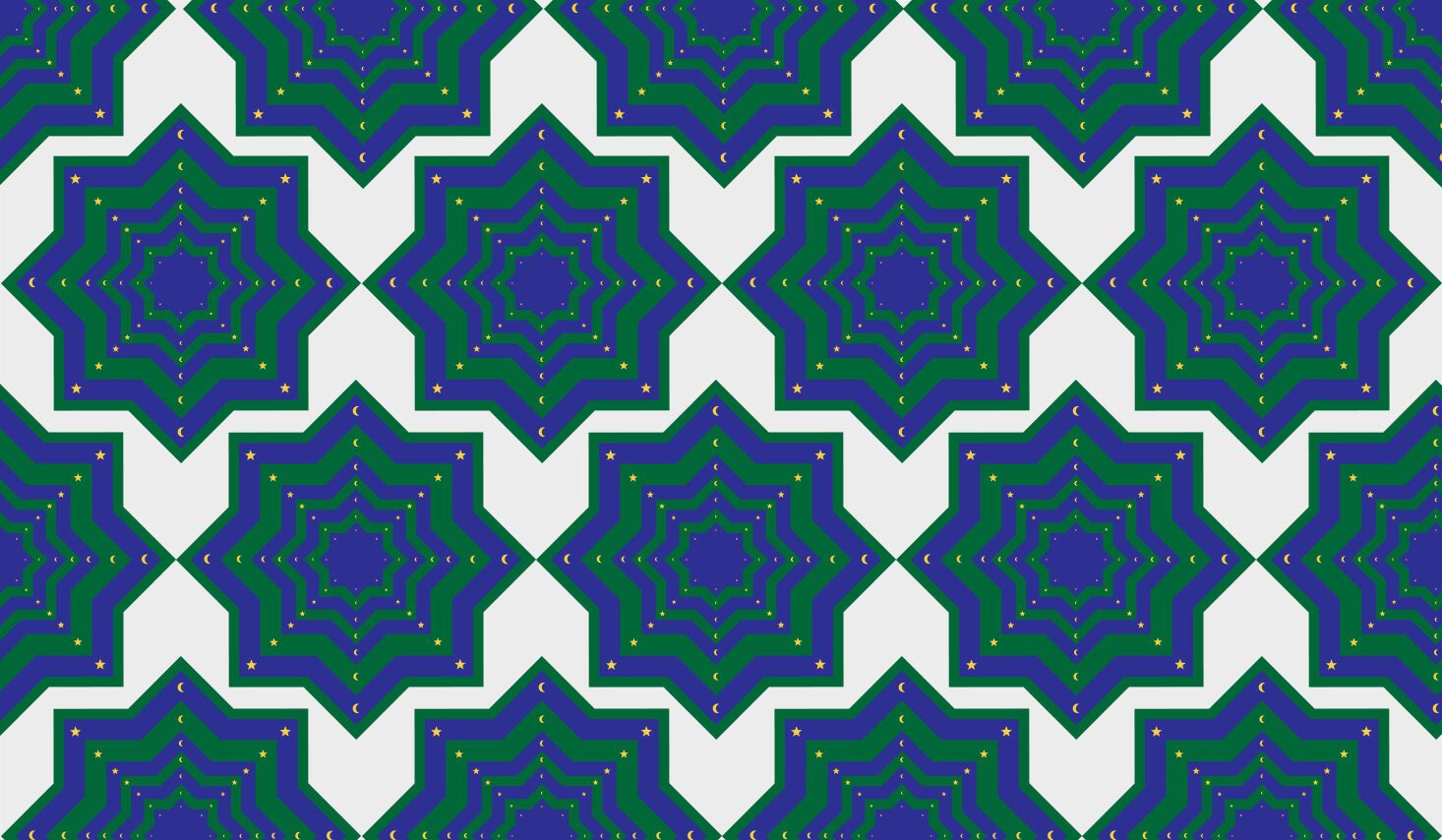
“I didn’t know you could be LGBTQ+ and Muslim” is a statement I overheard not too long ago. For the speaker, a religious identity (one of practised faith) felt juxtaposed alongside one of queerness. Whether it was a comment born out of naivety or ignorance, its passing sentiment had bothered me, as I thought: “Can queerness and faith co-exist?”. Well, that’s a broad stroked question with many avenues. Much like the variety of the LGBTQ+ community, there’s no archetype on how religion and queerness should be integrated, and nor does there need to be.
Instead, regardless of the chosen faith or culture, mutual respect should be granted as a member of the community seeks to find solidarity amongst others. Understandably, navigating a whole new community with the attachment of your personal cultures and religions is no easy feat. The often reiterated narratives of trauma and abandonment can paint a pretty bleak picture. However, there is always scope to spotlight the joyful moments of queerness, culture and visibility too. GAY TIMES spoke with a handful of LGBTQ+ Muslims to hear how they sought out queer joy and acceptance as part of both communities.
Like many religious celebrations, there’s always a lot of preparation. Luckily for us, Eid rolls around twice a year, so we get a bit of practice. Eid, for those that do not know, is a religious celebratory holiday observed by Muslims across the globe. Within Islam, there are two holy Eid holidays titled Eid al-Adha, which means “festival of sacrifice” and Eid al-Fitr aka “festival of breaking fast”, which will always fall at the end of a month of fasting (Ramadan).
For 18-year old Aliyah Ali, she has always found comfort in communal celebrations, especially with family. “After being denied to be who I am for 15 years I finally get to celebrate Eid the way I was meant to,” she says, reflecting on her decision to transition. “I finally get to wear the clothes I’ve been yearning for my entire life.”
While coming out as transgender was not easy at first, the teen is grateful she is now about to spend Eid “as [her] truest self” and able to commit to her religion. “I have the privilege of having a biological family,” she explains. “I’ll always choose to spend Eid with my family, by letting go of all my problems in life and spending time with the ones I love.”
In self-acknowledging her unique position, Ali hopes the conversation around queer Muslim identities is not confined to stories of unacceptance: “Our experience shouldn’t be reduced to just pain and isolation because we are so much more than that.” Looking ahead, the teenager hopes the LGBTQ+ community will take greater responsibility in looking out for queer minorities. “I want them to understand that being queer doesn’t make it impossible for them to marginalize others,” she tells GAY TIMES.
Our experience shouldn’t be reduced to just pain and isolation because we are so much more than that
“I want them to give the same acceptance they give different sexual orientations and gender identities to people who hold different beliefs than them.” The Californian adds it’s also imperative for the LGBTQ+ community to take a stand against racism, such as the horrific idea “that all Muslims are queerphobic extremist terrorists”. In denouncing dangerous stereotypes, Ali believes that community will give way to a space of understanding and acceptance. “It’s important to show our future generations it’s ok to be themselves and that there is joy and contentment in that,” she adds.
Sakib Khan is a member of the South Asian LGBTQ+ collective Gaysians. Khan, who recently turned 40, recalls when he came out aged 16 in 1998: “I had a very conservative, working-class and religious focused upbringing.” Only now, after years of growing adjacent to the queer community, has Khan become “aware” of the resources aimed toward LGBTQ+ Muslims. Still, for him, Eid is a particularly difficult time due to his family relationship and “personal trauma”.
Despite this, Khan agrees there is a need to dismantle the harmful dialogue surrounding South Asian queerness. “Breaking the negative narrative around queer South Asians is important,” he tells GAY TIMES. “[We need to] show the world and ourselves that we can be happy and that it isn’t just misery and loneliness if we chose to be visible.” However, the work to be done, for Khan, doesn’t fall just on the LGBTQ+ community but falls on both aspects of culture – LGBTQ+ and South Asian. “The dismantling of generic stereotypes and shaming that comes with how we are seen from both sides of our intersections needs to change,” he says.
Eid, for many, can resonate differently, despite its similar religious root. Faizan, 49, is the founder of the UK LGBTQ+ Muslim charity. Speaking to GAY TIMES, they explain how the religious holiday has “expanded” since getting married to a transgender spouse outside of their ethnicity. “We try to make Eid special in our own queer way. This year we decorated the house in Eid lights and bunting,” Faizan says.
“For Eid itself, in previous years we’ve been to a handful of inclusive Muslim events such as Eid prayers with the Inclusive Mosque Initiative.” Since moving away from volunteering with the Imaan charity, Faizan is still playing their part in making the community more accessible: “There are a lot of misconceptions about LGBTQ+ people and Muslims. I’d like us all to find each other, unite and build community and be happy. It’s what I’ve been working on for most of my adult life!”
We as queer Muslims exist, that is a fact, we practice Islam, and while you can disagree on certain aspects of it, you cannot erase us
Mufseen Miah is an LGBTQ+ activist and podcast host at Queer Talk. Miah likens Eid to a moment “about family” and finds joy in the ability to just “be together”. The 31-year-old has a mixed relationship with his family and no longer spends the day with his family. However, he remains hopeful to heal and, instead, “would love nothing more than a queer Iftar with other LGBTQ+ folks”. The Queer Talk podcast host empathises with the inability to find a lot of visible queer joy in the Muslim LGBTQ+ community. We don’t hear about queer Muslims enjoying Eid because that enjoyment isn’t handed to us on a plate, instead, we have to find joy through hard experience and confidence and from the relatives and chosen family we surround ourselves with,” he explains. “It’s so important to celebrate genuine queer South Asian joy because in this country it’s not as commonplace as I’d like to see and it should be cherished wherever it’s found.
Much like Miah, London-based Furgie has reworked his relationship with Eid in an effort to seek out comfort in the queer experience. Although not out to his family in Pakistan, the 29-year-old holds a “very subtle” celebration of Eid without his loved ones. “Not being out means it’s very much a time of hiding. It’s a reminder of what I’ve lost as an immigrant but also how much I’m losing as a closeted LGBTQ+ person,” he explains. Proud of both his identities, Furgie is a devout believer that queer comfort and understanding can be found for LGBTQ+ Muslims, even if it can be difficult at times.
“Queer South Asian joy exists, we often are constantly in some shape or form reminded of queer South Asian trauma. There is a celebration, there is a level of community and togetherness that doesn’t get highlighted and mentioned enough.” In reminding himself, and the wider community, of the attainability of self-acceptance and inclusivity, Furgie hopes the same attitudes will soon be shared by non-LGBTQ+ Muslim voices too. “We often get erased because we are told that we cannot be Muslims if we are part of the LGBTQ+ community,” he tells GAY TIMES. “We as queer Muslims exist, that is a fact, we practice Islam, and while you can disagree on certain aspects of it, you cannot erase us.”
